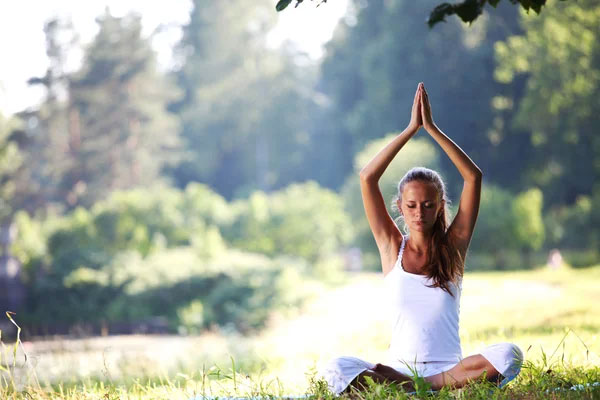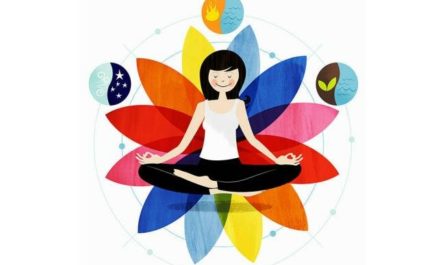The Power of Yoga for Flexibility and Mindfulness
Yoga, a millennia-old practice, has carried its profound benefits into modern times. Not only does it enhance physical health by improving flexibility, strength, and balance, but it also promotes mindfulness, an essential element for mental well-being. The power of yoga lies in its holistic approach to health, targeting both the body and mind, and its versatility allows everyone from beginners to advanced practitioners to reap its fruits.
Exploring Yoga: A Path to Enhance Flexibility
Yoga is widely recognized for its ability to enhance physical flexibility. Through a sequence of poses that stretch multiple muscle groups, yoga gradually increases one’s range of motion. Unlike other fitness routines that focus on isolated muscle work, yoga integrates the entire body, encouraging it to move gracefully within its capacity. As a result, practitioners develop better body coordination and balance, reducing the risk of injuries.
The poses in yoga, also known as asanas, vary from gentle to challenging, allowing individuals to progress at their own pace. Regular practice of these asanas helps to lengthen and stretch muscles, thereby increasing flexibility. Flexibility in turn enhances daily functions such as bending, reaching, and twisting, while also improving sports performance.
Yoga and Mindfulness: A Symbiotic Relationship
Alongside promoting physical flexibility, yoga nurtures mindfulness. This involves being fully present in the moment, focusing on breathing and movement, and acknowledging thoughts without judgment. The practice of yoga encourages this mindful engagement, allowing practitioners to tune in to their bodies and minds, fostering a state of internal calm and focus.
Yoga and mindfulness are intrinsically linked. The physical movement of yoga helps to ground mindfulness in the body, while mindfulness in turn deepens the practice of yoga, aligning movement and breath. This symbiosis yields a myriad of benefits, including stress reduction, better mood, and improved sleep quality.
The Science Behind Yoga, Flexibility, and Mindfulness
Scientific research supports the benefits of yoga for flexibility and mindfulness. Studies show that yoga can enhance muscle flexibility and joint range of motion, reduce muscle tension, and improve proprioception, the body’s ability to sense its position in space. Additionally, yoga’s focus on breath control teaches the body to respond to stress more effectively, thereby promoting relaxation and mental clarity.
Neuroscientific studies have shown that mindfulness practices, such as yoga, can actually change the structure of the brain. Regular practice can increase the thickness of the prefrontal cortex, which is responsible for cognitive functions like focus and decision-making, and reduce the size of the amygdala, the part of the brain associated with stress and anxiety.
| Benefits of Yoga | Physical | Mental |
|---|---|---|
| Flexibility | Enhances range of motion and body coordination | Improves focus and decision-making |
| Mindfulness | Reduces muscle tension and improves proprioception | Reduces stress and anxiety, improves mood and sleep quality |
Practical Yoga Exercises for Flexibility and Mindfulness
Now that we’ve explored the benefits and science behind yoga, let’s delve into some practical exercises that promote flexibility and mindfulness.
- Seated Forward Bend (Paschimottanasana): This pose stretches the spine, shoulders, and hamstrings, promoting flexibility. As you fold forward, focus on your breath, cultivating mindfulness.
- Child’s Pose (Balasana): A gentle stretch for the hips, thighs, and ankles, this pose also serves as a calming resting pose during yoga sequences. Close your eyes, breathe deeply and focus on the sensation of the breath entering and leaving your body.
- Tree Pose (Vrksasana): While boosting balance and flexibility, this pose also encourages mental focus and calm as you concentrate on maintaining your balance.
Remember, yoga is not about striving for perfection, but about attuning to your body and mind. Start with gentle poses, increasing the intensity as your flexibility improves.
Conclusion: Incorporating Yoga into Your Daily Routine
Yoga, with its myriad of physical and mental benefits, makes an excellent addition to any daily routine. The beauty of yoga lies in its adaptability to individual needs and capabilities. Whether it’s a five-minute morning stretch or an hour-long session, each practice contributes to increased flexibility and mindfulness.
Taking the time to engage with yoga not only improves your body’s function but also fosters a healthier, more mindful approach to life. As you incorporate yoga into your daily routine, remember to honor your body’s limits and progress at your own pace. With patience and consistency, the power of yoga to enhance flexibility and foster mindfulness will truly start to shine.






